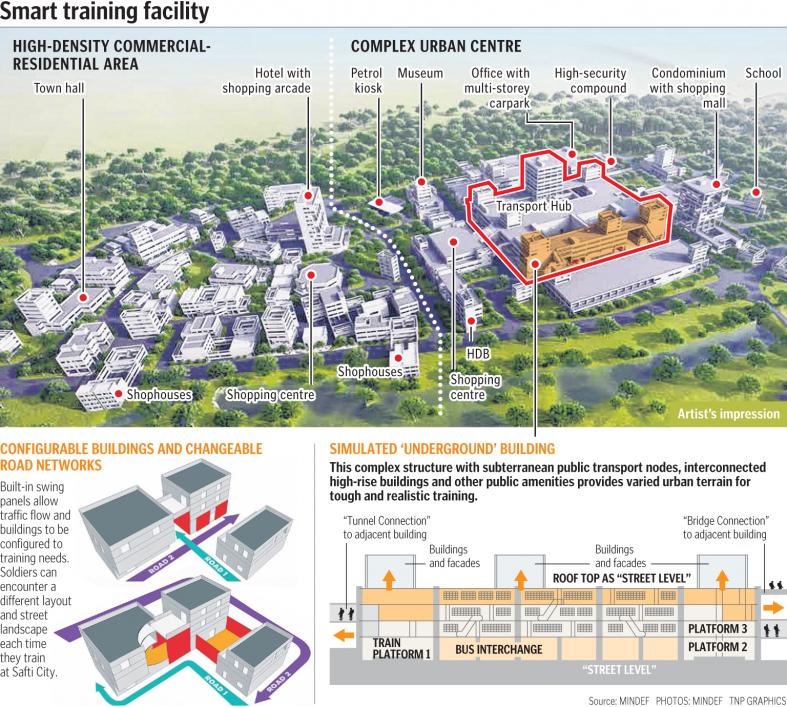Safti City to offer state-of-the-art training facilities from 2023
Targets that can fire back and retreat, battlefield effects that simulate blasts from anti-tank weapons, and street networks and building configurations that change every time.
These are some of the state-of-the-art features that future troops can expect at Safti City, a sprawling 88ha training facility for homeland security and urban operations, which is slated to open progressively from 2023.
The facility will feature battlefield instruments and video cameras that can track soldiers' actions in real time, and through data analytics, scorecards on individual and team performances will be made available, motivating them to improve further.
For added realism, the $400 million facility will feature an integrated transport hub with a bus interchange and MRT platforms stocked with decommissioned buses and trains, along with buildings resembling a hotel, shopping malls, a school and a hospital.
Located in western Singapore, Safti City, first announced in 2017, will be built in two phases.
Phase 1, which Defence Minister Ng Eng Hen helped break ground last Friday, consists of two sectors, a complex urban centre and a high-density commercial and residential area.
Spanning 17ha, it will have over 70 buildings, with three as high as 12 storeys, and a gross floor area of 107,000 sq m, which can accommodate training at the brigade level, or about 3,000 to 4,000 soldiers.
The second phase, a training industrial complex, is still in the planning stage.
During the ground-breaking ceremony, Dr Ng noted that battles have seldom been fought in the jungle in the last two decades, and said the odds that the SAF will operate in built-up areas and high-density precincts have gone up - whether it is for peacekeeping, humanitarian assistance and disaster relief or other operations.
He added that the kind of realism Safti City offers can enhance training exponentially.
Later that day, Dr Ng also spoke to reporters for an interview marking SAF Day.
He noted that reports of near-miss accidents have risen, a good sign that soldiers are taking the issue of safety more seriously.
Giving an update on the Inspector-General's Office (IGO), which was set up to strengthen safety standards after a spate of training deaths, Dr Ng said: "We will keep monitoring it, and from time to time, the IGO will present a report on how we have improved or were there areas where we need to improve."

Get The New Paper on your phone with the free TNP app. Download from the Apple App Store or Google Play Store now



